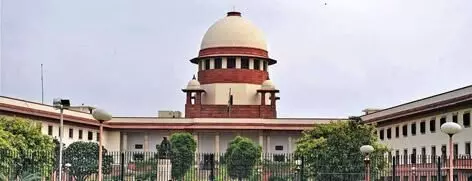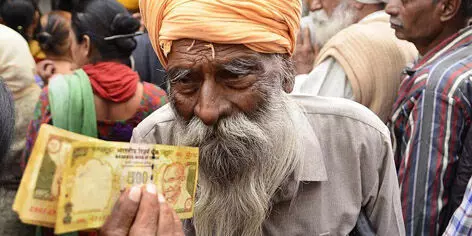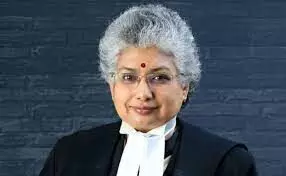
Two judgments for the nation
text_fieldsA five-judge constitution bench of the Supreme Court has delivered a verdict that gives relief to the Central government on the issue of demonetisation and expression of opinions of those in responsible positions like ministers. During the tenure of Chief Justice UU Lalit, a Constitution Bench, comprising Justices V Ramasubramanian, S Abdul Nazeer, BR Gavai, AS Bopanna, and BV Nagarathna was assigned the case to hear and deliver the verdict. Now that verdict has been issued, the Centre is free to establish without any regrets that, despite all the uncertainties and challenges, demonetisation was the right decision. On the other hand, through the second judgement, the Centre has been given a favourable legal position that allows it to sit in judgement where public workers, including ministers, are accused of hate speech.
The majority judgements of the Constitution Bench have been formulated in these two judgements by highlighting and quoting the fundamental principles that should always prevail in a democratic and constitutional system. While it is true that they are correct in principle, the sad fact is that in practice, they have evolved into the power of the executive to enforce its dictatorial whims. The Supreme Court affirmed the Centre's authority during the demonetisation process and upheld the principle that the judiciary should not exercise power over elected governments when it comes to matters of economic and social policy. The court distorted the intrinsic essence of justice by merely interpreting the fundamental principles on a technical level. Moreover, the fact that it would give the executive the power to behave in a dictatorial manner was not taken into consideration. At the very least, the court should have been able to prevent government encroachment on the RBI's sovereignty or critically question the government's failure to foresee the disastrous situation created by demonetisation. But the Supreme Court's majority opted to ignore all embarrassing questions. In the dissenting judgement, Justice Nagarathna's criticism that the Reserve Bank was doing the Centre's bidding using its discretion, and that demonetisation was not in accordance with section 26 (2) of the Reserve Bank Act, become a silver lining in the history of demonetisation. She refutes the logic of the majority verdict, which supports the authoritarian inclinations of the elected administrations, by pointing out that Parliament, which is the centre of democracy, cannot be excluded from discussions of crucial and important issues.
The Constitution Bench concluded that the freedom of expression of the public cannot be restricted any further than what is permitted under Article 19(2) of the Constitution, underscoring the essential idea that the spirit of democracy is the right to dissent. Justice BV Nagarathna provided a response to the fundamental query whether a minister's statement related to the government's position can be regarded as the government's. Judges except Justice Nagarathna answered this in the negative. In addition, it was clarified that while each minister is bound by the decision taken by the cabinet as a whole, the cabinet does not bear responsibility for the actions of each minister. Through this, the Chief Minister and the parties have been relieved of the "burden" of the remarks made by ministers and people's representatives. Only when it can be proven that a comment caused harm or loss to another person or citizen does it qualify as constitutionally offensive. If the majority had agreed with Justice BV Nagarathna's position that Chief Ministers are to be made accountable for ministers' speeches, that Parliament and parties can control the public speeches of people's representatives through a code of conduct, and that victims of hate speech can go to court, it would have preserved the rights of dissent and restricted their misuse. The Supreme Court, through technical reasoning, left go of the possibility of holding all ministers including the Prime Minister, liable to respond to hate speech. The historic significance of these judgments lies in the fact that the light of justice, which had been hidden by technicalities, came out through the narrow hole of the dissenting voice of Justice BV Nagarathna.









